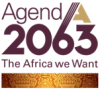Framing Concept
Knowledge is power—only when applied. This module equips trainees to convert information into insight, insight into influence, and influence into implementation for Africa’s transformation.
Objectives
- Understand knowledge as “know-how” critical for delivering on commitments.
- Introduce the Curate–Share–Apply knowledge cycle.
- Support participants to develop a personal Knowledge Activation Plan aligned with their goals and Agenda 2063.
- Emphasize the duty of knowledge stewards: to ensure it circulates and is useful.
Content
- What is knowledge? What makes it useful?
- Differentiating information, insight, and know-how.
- The Curate–Share–Apply cycle:
- Curate: Select, organize, and interpret relevant insights.
- Share: Communicate with purpose to specific audiences.
- Apply: Act on knowledge and support others to do the same.
- Tools and platforms for knowledge curation and dissemination.
- Knowledge stewardship: turning personal learning into shared value.
Key Messages
- Agenda 2063 depends on practitioners who not only know but apply what they know.
- Curated knowledge is a public good. Applied knowledge is a transformation asset.
- Knowledge must move—from you to others, from theory to practice, and from moments to systems.
Deliverable
📄 Deliverable 6: Knowledge Activation Plan
A personalized plan that outlines:
- What knowledge I need to achieve my commitments.
- How I will curate that knowledge.
- How I will share it (platforms, formats, audiences).
- How I will apply it—and help others do so.
- Timeline and key milestones.
Facilitators
- Knowledge Management Specialist
- Guest practitioner who has used knowledge to solve real-world challenges.
Reading Materials
- What is Knowledge and Why it Matters?
- The Curate–Share–Apply Knowledge Cycle
- Knowledge Activation in African Contexts
- Curating Knowledge for Systems Change
